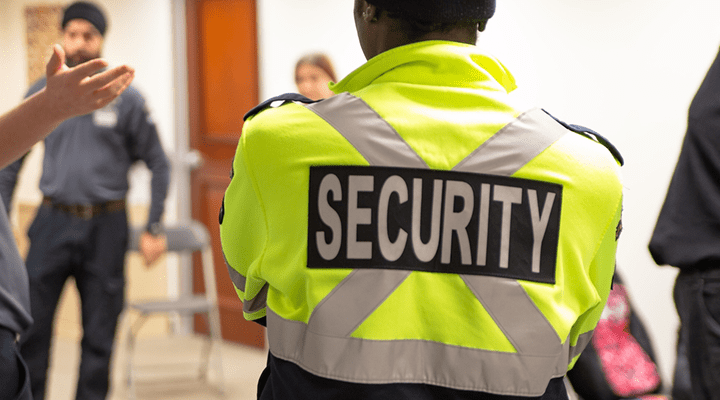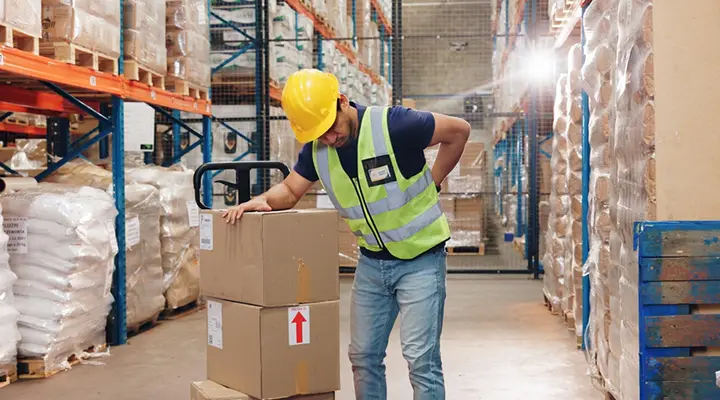Training is an essential step in protecting the health and safety of every employee, but it becomes even more important for the estimated 8 million people in the UK who work alone.
Lone workers carry out their work activities by themselves, without a colleague around. This makes it more difficult for lone workers to get help when they need it. They must recognise hazards and cope with unpredictable and unforeseen situations on their own. Lone worker training is an essential part of ensuring that anyone working by themsilves stays alert to the hazards in their work environment and are able to manage the risks.
This article explains who is responsible for lone worker training, what duties employers and employees have when they work alone and knowing your rights if you have to work by yourself.
What is a lone worker?
A lone worker is defined as someone who works by themselves, without close or direct supervision.
The phrase lone worker does not always mean that they work alone. A lone worker is somebody who spends all or part of their working day without a co-worker or teammate present. This isn’t solely reserved for those who would be working outside or involved with manual labour.
Many users of our lone worker courses come from a multitude of disciplines. Anyone working in industries like accountancy or hospitality can be a lone worker too.
Who is responsible for lone worker training?
The responsibility for lone worker training falls on the employer. An employer is also responsible for any freelancers or contracted staff they hire, as the HSE states, “Your employer has specific duties to protect you as a lone worker”.
The Health and Safety at Work Act 1974 (HASWA) requires an employer to protect the health, safety and welfare of their workforce. As a part of this duty, employers must ensure lone workers receive appropriate information and training. They must also ensure their workers are competent to fulfil their work duties safely.
What responsibilities does an employee have when lone working?
The overall responsibility to protect lone workers falls on the employer. However, employees have certain responsibilities to ensure their own safety and well-being when working alone.
Employees are required to:
Co-operate with employer on health and safety procedures
Employees must co-operate with their employer to ensure their own safety, and never put themselves or other people at unnecessary risk. Employees should familiarise themselves with and follow any health and safety policies and procedures that were put in place by their employer.
This includes maintaining regular communication by checking in at set intervals, wearing appropriate personal protective equipment (PPE), using provided safety devices, following safe work practices, being aware of their surroundings at all times and following any specific guidelines related to their work environment or task. You can always stay one step ahead of this by taking part in a course within your sector.
Attend and follow any training and instruction provided
Employees must work in accordance with any training and instruction provided by their employer. They must use tools and other equipment properly, according to relevant safety instructions and any training they have been given and never misuse equipment that was provided for their health and safety.
Report any health and safety concerns
Lone workers have a responsibility to inform their employer, supervisor, or health and safety representative of any safety issues, accidents, near-misses, or other potentially hazardous situations. This helps employers to identify potential risks, improve safety measures, and prevent similar incidents in the future.
Can i refuse to work if i feel unsafe?

Every employee has the right to refuse work in a dangerous environment. This right is known as the right to refuse unsafe work.
The Employment Rights Act 1996 says that employees have the right to refuse to work when they reasonably believe there is a serious and imminent danger to their health and safety, which they cannot reasonably avoid.
You must not do a task if you think doing so would put you or another person in danger. Stop the work immediately and inform your employer. They will then evaluate whether the task is unsafe and take the required steps to resolve the issue.
Which activities are not appropriate for lone workers?
There are several work activities that a worker should never do alone because they are too dangerous. They need at least one other person to be present when the task is being carried out.
This includes work*:
- In a confined space
- Near exposed live electricity conductors
- In diving operations
- In vehicles, which carry explosives
- With fumigation (use of chemical fumes to disinfect an area or kill pests such as insects or rodents)
Order your online Lone Worker training today!
Our Lone Worker training course is perfect for businesses, with contracted or self-employed workers, who work alone without close or direct supervision. The course explains the hazards associated with lone working and identifies simple, sensible precautions to take to keep safe when working alone.
Feel free to contact us on 0333 577 5016 or sales@i2comply.com and our team will be on hand to help.



